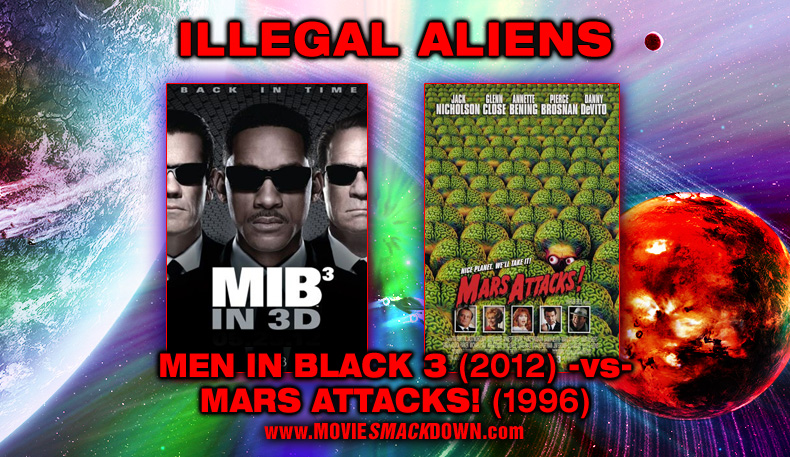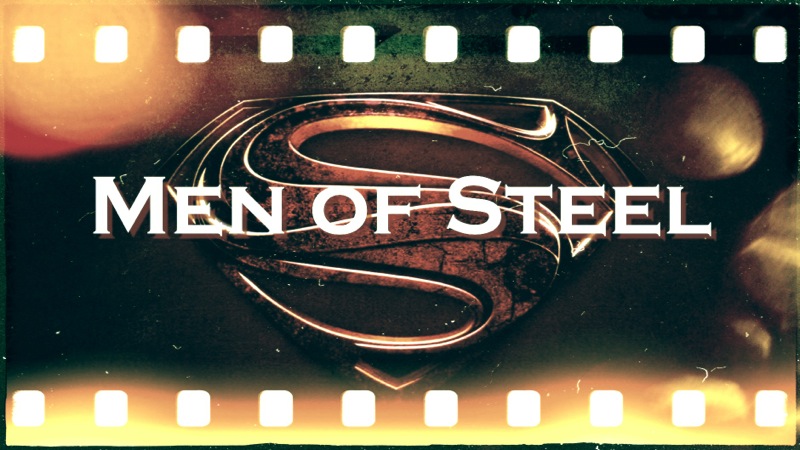 The Smackdown
The Smackdown
Movies, like much in life, reinforce the notion that more isn’t always better, just more. For every “Godfather II,” you get “Teen Wolf Too,” “Dumb and Dumberer,” and “Jaws: The Revenge.” With some ideas, better to cut your losses.
That question comes to mind with the new release of “Terminator Salvation.” Has the basic idea worn out its welcome? “The Terminator” came out in 1984 and became a world wide hit that propelled director James Cameron into a distinguished career. Arnold Schwarzenegger graduated from curiosity to movie star.
It’s now a bankable franchise. The basic idea of mechanized death traveling through time to alter the future carried three feature films and a now-canceled TV series. All rework the storyline to emphasize different aspects of a familiar fable. They succeed to varying degrees and set a high bar for whatever follows.
“Terminator Salvation” faces tall tasks in this Smackdown!: Does it succeed as a film on its own merits, while advancing the memorable elements set forth in “The Terminator?” Will you hear “I’ll be back” and wonder why?
[singlepic id=1088 w=320 h=240 float=right]
The Challenger
The opening credits are pure Terminator, but the first few minutes of “Terminator Salvation” show something else entirely. A convict faces lethal injection at a California prison. A death row visit with Dr. Serena Kogan (Helena Bonham Carter) convinces Marcus Wright to donate his body to science. We are transported decades into the future and the scorched earth where a few human survivors strive to snatch control from the machines that rule the planet. Within the Resistence, John Connor (Christian Bale) is legendary for punching holes in the self-aware computer system, Skynet. He broods over an audio recording from his long-dead mother and her references to his unknown father, Kyle Reese. Out in the desert Marcus Wright (Sam Worthington) reappears with little memory of his past and a big desire to find Skynet. The Resistence finds him first and makes an astounding discovery about Wright that is central to the action. Connor even learns Kyle Reese is a Skynet prisoner. This eventually leads to a big showdown — and since a fifth Terminator film is in preproduction, you can guess how this one plays out.
[singlepic id=61 w=320 h=240 float=right]
The Defending Champion
Sarah Connor (Linda Hamilton) leads an unremarkable life in Los Angeles until women with the same name are brutally gunned down. In “The Terminator” she learns the truth before the police: The shooter is a skin-covered robot – a cyborg – sent back in time to kill her. Lucky for Sarah the Resistence sent Kyle Reese (Michael Biehn) through the same portal to protect her from the Terminator (Schwarzenegger). Reese draws a bleak picture of the future and how Sarah’s future child – John – holds the key to leading the Resistence to victory. The machines, he explains, figure they can change the future by eliminating Sarah before before John is born. The ensuing chase builds one of the memorable sequences in film, and solidified a franchise still vital after 25 years.
The Scorecard
“The Terminator” enjoys an impact far beyond its ambitions. The production spent its $6 million budget well on special effects whiz Stan Winston and the robot that walks like a man, Arnold Schwarzenegger. Perhaps the biggest asset is the script Cameron co-wrote with Gale Anne Hurd (with an on screen acknowledgment – following a lawsuit – to sci-fi writer Harlan Ellison). The script gives its characters dimension. The action moves ahead simply, even in presenting a head-scratching paradox (John Connor sending Reese into the past to save the woman and father Connor with her) that is a crucial plot element. Schwarzenegger created a persona that followed the Governator into public life.
The movie offers other lasting pleasures: The synthesized sound track, the Terminator’s grooming habits and that 80’s wardrobe, so dated and frozen in time. This film would never be a fan favorite without its edgy dramatic build and several false endings. “The Terminator” still delivers a quarter century later.
That’s a standard “Terminator Salvation” tries to overwhelm with a production budget estimated at $185 million. It follows the current movie style of being loud, heavily digitized, in your face. The production also carries more than a whiff of “Transformers,” “Aliens,” even “Road Warrior.” To its credit, “T-Salvation” steps out to be its own movie.
Here, we see John Connor fully grown in a ruined world where humans are the endangered species. We see the machines perfecting their capacity to dominate the earth. The tableaux is a nightmare and the stakes are truly life & death. Into this struggle Marcus Wright appears and we learn his critical secret and that of Dr. Kogan. The script by John Brancato and Michael Ferris plays to its strengths and the credits pay homage to the late Stan Winston, who supervised creature effects. And yes, we see the Governator again, in a digital cameo echoing the big payoff from “The Terminator.”
The original does much with relatively little. Can we decide whether the newest version – with its vastly deeper resources – can say the same?
The Decision
Yes, it can. Like the earlier sequels, “Terminator Salvation” reworks the form
ula effectively to create a separate identity. Part of that can be laid at the director’s chair of Joseph McGinty Nichol, “McG.” This film will remind you of others, perhaps only momentarily.
Don’t expect strict logic in this movie, so leave your sense of disbelief at the ticket counter. Audiences will decide whether those lapses matter.
We’ll learn soon enough if a fifth Terminator movie is worth the bother. This version, “Terminator Salvation,” doesn’t need to outperform the original to survive the SMACKDOWN! It stands apart, yet advances the franchise nicely and earns its place in the DVD library.




This is the sequel we never wanted, with the director we never wanted. A film that was made hoping to make a lot of money because of the fanbase, but really just annoyed the Terminator fanboys straight away.
And the film wasn’t actually that bad, so I don’t know what you’re on about.
The original Terminator surpassed Salvation in every asepct. I love Christian Bale (Rescue Dawn, American Psycho, Equilibrium), but John Connor’s gay Batman voice got on my nerves. Anyone who prefers Salvation over The Terminator does so lazily; we’re so used to overbudget crap-fests this day and age, that nobody expected anything good or decent out of Salvation. Anyone who prefers this DECENT, AT BEST film should contract a horrible, HORRIBLE disease
gay.
The original was a vision of darkness but the latest is just darkness.
I loved it. I thought it did justice to the series, and I now cannot wait for the following films
Hmmm…. Okay, TERMINATOR 2: JUDGMENT DAY is, by far, the best of the best from this series. But it’s not in the ring. The question is whether the first installment or the latest installment is the best. Technically, this last one is quite an accomplishment but it’s not a triumph in story. It raises questions it doesn’t answer and it’s a little sloppy in other areas. But THE TERMINATOR set the world brilliantly (and for almost no budget) so it’s ahead on points. Then, the real question: which one made us care about the characters more. That’s got to be the original. Despite all the bad 80s hair, it is still great to see the young Linda Hamilton come to grips with the fact that there actually is a machine from the future which has come back in time to kill her. Wow. That’s a problem and a half. So, I go for the original.
I don’t know…. Michael Bay has made an amazing career out of directing huge budget films that make no sense and defy logic.
Anyway, I am interested in seeing Terminator: Salvation, although, to be honest, I think it might be a rental for me. The trailers didn’t really excite me enough to see it in cinema.
The original Terminator film remains (for me) one of sci-fi cinema’s truly great examples of a smart script, dedicated effects team, and a director with a fully realised vision. I doubt very much if James Cameron makes films “by committee” these days, and neither should he. But for the rest of Hollywood, if you’re going to take a franchise as successful as the Terminator films, you want to make sure you try everything to get it right. Unfortunately, as is often the case these days, when the person/people who created the franchise are no longer linked to it and have control of it, the lustre wears off.
It has something to do with risk aversion. If you’re spending $185-million on a film, then you’re very nervous that you get it right. However, since movies are subjective endeavors, there is no perfect way to “get it right.” So you do the next best thing (you think) and hire the writer whose last movie made money, then you hire another one to re-write him and every word is overanalyzed. Since “Terminator” is a franchise and, therefore, not the creative “don’t touch” of any particular creative talent, you do get some committee work in it. The miracle, I think, is that these big movies like “Terminator” can actually come out good.
Chris:
I don’t know what you’ve read. I make it clear this film is definitely worth the ticket price.
I’m not sure this kind of material can be “lightened up” if I understand what you mean. World destruction, annihilation of the human race — this sort of material will never create “the feel-good movie of the summer.” The tone dictates the treatment.
Someone more qualified – perhaps Bryce Zabel – can tell you why large budgets often mean poor scripts. I suspect movies at that level get rewritten by committee. As a result, any singular vision is buried under excessive tinkering.
I’ve seen a lot of mixed reviews for this movie. I’m still going to go see it no matter what anyone says.
I’m glad they decided to make this movie more serious. I could never understand the desire to “lighten up†these types of movies. I also don’t know why with such a big budget; they can’t seem to get a decent story writer.